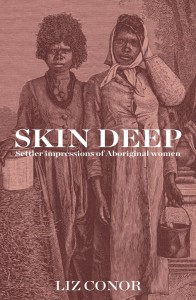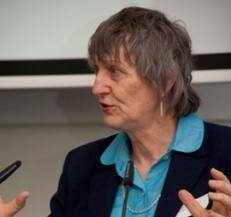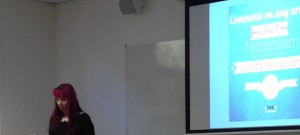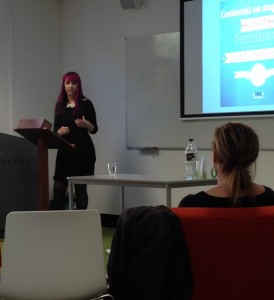FRN, CASS and CCHR invite you to the following:
SEMINAR and BOOK LAUNCH
Date: Monday 19 March 2018
Seminar: 3.00pm to 4.30pm, Book Launch: 4.30pm to 5.30pm
Location: Panizzi Room, UOW Library
RSVP: Seminar and/or Book Launch – Thursday 15 March: sharoncd@uow.edu.au
Associate Professor Jane Haggis: College of Humanities, Arts and Social Sciences, Flinders University
What Was the Steward Up to? Indian Women Touring Europe in the 1930s: Vernaculars of Friendship, Cosmopolitanisms and Anti-Colonialisms at the End of Empire
Jane Haggis is an historian who combines historical analysis with social and cultural theory. Her research interests are wide, but cluster around three themes: cross-cultural encounters, affect and power in imperial and post-imperial contexts. She has published widely internationally in feminist historiography and gender and empire, and is currently leading an Australian Research Council funded project [DP 170104310 2017-2019), ‘Beyond Empire transnational religious networks & liberal cosmopolitanisms’ with Professor Margaret Allen, Professor Fiona Paisley and Professor Clare Midgley. With these scholars she recently published, Cosmopolitan Lives on the Cusp of Empire: Interfaith, Cross-Cultural and Transnational Networks, 1860-1950, Palgrave Pivot, 2017. Her long engagement with critical race studies most recently saw the publication of “Situated Knowledge or Ego (His)toire?: Memory, History and the She-Migrant in an Imaginary of ‘Terra Nullius’” Ngapartji, Ngapartji. In turn, in turn: Ego-Histoire, Europe and Indigenous Australians (ANU Lives Series in Biography, 2014). It also led to an Australian Research Council funded project (with S Schech) From Stranger to Citizen: Migration, Modernisation and Racialisation in the Making of the New Australian” (DP 0665782) results from which she most recently published in “White Australia and Otherness: The Limits to Hospitality” in Cultures in Refuge: Seeking Sanctuary in Modern Australia (2012). She is currently working on a monograph from that project, provisionally titled: Storying the borderlands: imaginaries of modernity and the refugee in Australia. The book (with S Schech) Culture and Development, (2000), pioneered a postcolonial feminist analysis of International Development and remains a seminal text.
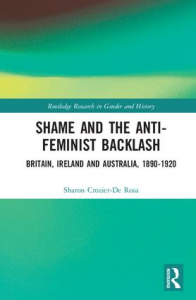 Associate Professor Haggis will then launch:
Associate Professor Haggis will then launch:
Shame and the Anti-Feminist Backlash, Britain, Ireland and Australia, 1890-1920 (Routledge 2018)
Dr Sharon Crozier-De Rosa
Shame and the Anti-Feminist Backlash examines how women opposed to the feminist campaign for the vote in early twentieth-century Britain, Ireland, and Australia used shame as a political tool. It demonstrates just how proficient women were in employing a diverse vocabulary of emotions – drawing on concepts like embarrassment, humiliation, honour, courage, and chivalry – in the attempt to achieve their political goals. It looks at how far nationalist contexts informed each gendered emotional community at a time when British imperial networks were under extreme duress. The book presents a unique history of gender and shame which demonstrates just how versatile and ever-present this social emotion was in the feminist politics of the British Empire in the early decades of the twentieth century. It employs a fascinating new thematic lens to histories of anti-feminist/feminist entanglements by tracing national and transnational uses of emotions by women to police their own political communities. It also challenges the common notion that shame had little place in a modernizing world by revealing how far groups of patriotic womanhood, globally, deployed shame to combat the effects of feminist activism.




